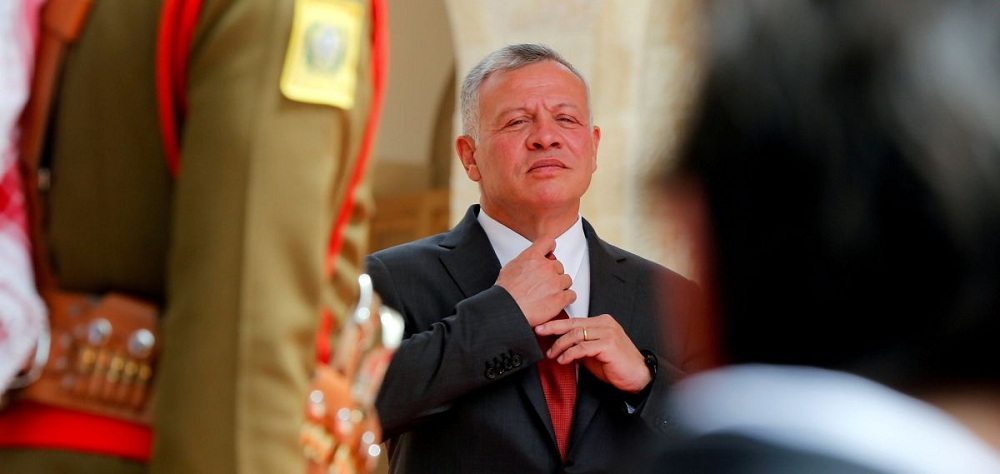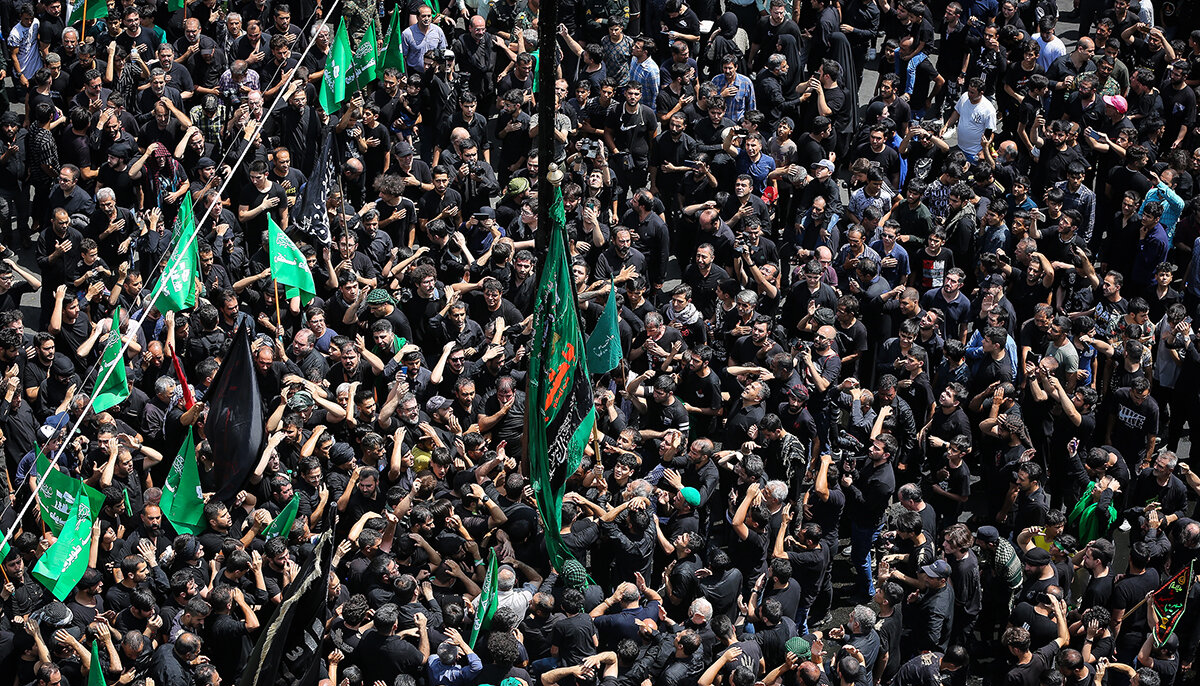Alwaght- Qatar’s Al-Sharq and Kuwait’s Al-Qabas newspapers have revealed recent plots against the Jordanian King Abdullah II and an insider to his rule. It appears that the insider is Omar al-Razar who is the prime minister of the Arab monarchy. In the middle of the situation, General Adnan Jundi, the head of Jordan’s intelligence agency, and a number of other security and police heads were removed from their posts.
Explaining about the removals, King Abdullah said that the decision was taken based on reports by the nation’s intelligence agency about some “exploiting” their position for personal advantages.
However, some analysts dismiss the explanation, saying that the all of a sudden dismissals came as Saudi Arabia puts strains on the Arab countries for diplomatic normalization with the Israeli regime as part of the broader plan for implementing the “deal of the century.”
The Jordanian officials are concerned that Riyadh is trying to jeopardize Amman’s position as the custodian of Al-Aqsa Mosque of al-Quds (Jerusalem) by terminating the displaced Palestinians’ right to return home under the deal of the century.
Jordan place in the deal of the century
Three American figures, Jared Kushner, Trump’s son-in-law and advisor, Jason Greenblatt, the US special representative to the region, and David Friedman, the US ambassador to Tel Aviv, are the key architects of the deal of the century. Unofficial reports have leaked about the US-supported deal. Some recent speculations have suggested that forming a Palestinian state within 80-90 percent of the West Bank borders with a capital inside the Israeli-occupied territory— very likely covering a region from Abu Shuafat to Abu Dis— in return to giving up Al-Aqsa Mosque to the Israelis is likely. So far, the Israeli Prime Minister announced that he will not allow a Palestinian state to form. The two-state solution has been a vague point in the deal of the century and the architects have tried to evade pointing to it in the plan.
The Palestinian Authority and other Palestinian factions have strongly come against the deal. The architects have set three corners for their deal to go ahead. Of course, two corners are the Palestinians and the Israelis. To persuade the Israeli side, Washington has been concentrating on annexing Al-Quds and parts of West Bank to the borders of an Israeli state. And to persuade the Palestinians, the US focuses on financial incentives that will include a $40 billion aid package, access to some ports, and establishing economic zones.
But the third corner is the regional states, like Saudi Arabia, Egypt, Turkey, Iran, and Jordan. American officials put the heaviest-ever economic sanctions on Iran as a key opponent of the Israeli occupation. The peak of the anti-Iranian sanctions is expected to be at the time when the provocative will be unveiled. Turkey will also be under political strains but at the same time Ankara will be given some economic privileges.
However, the case is different when it comes to Saudi Arabia, Egypt, and Jordan. In return for receiving $65 billion, Cairo will give some facilitations to the Palestinians in Sheikh Zuweid, Rafah, and Arish, three of which Egyptian territories. Parts of eastern Jordan will very likely be given to the Israeli regime. Egypt by transferring the Red Sea islands of Sanafir and Tiran to Saudi Arabia in 2017 was already playing a role in a territory transfer within the deal of the century. Jordan will be asked to be an alternative state for Palestinian refugees in return for $45 billion aid. According to the Wadi Araba agreement, Jordan was given in 1949 the custodianship of Al-Aqsa and other Islamic sites in Palestine. But under the deal, the custodianship will be revoked and given to Saudi Arabia. For Riyadh, the geopolitical aspect of Al-Aqsa is not important. What is important is the religious aspect.
But Amman is strongly against the intentions. Insider Jordan and across the Arab world, the Muslim Brotherhood are opposed to the deal. The US has recently said it considered blacklisting Muslim Brotherhood as a terrorist group, a move that will appease Egypt and press the anti-deal Islamist movement.
Pressures increase on Jordan
Among the regional states, Jordan holds a key role in the deal of the century’s implementation. In a recent stance, Jordan’s king dubbed his country’s duty towards Palestine “historic” and once again openly opposed it.
Jordan’s opposition has been indicated in a set of ways over the past year. Last week, for example, the king reportedly ordered reviewing the multi-billion agreement with the Israeli regime to import natural gas from the occupied territories. Amman also sought warm relations with Tehran. Last year, King Abdullah met Iran’s President Hasan Rouhani on the sidelines of Special Organization for Islamic Cooperation in Turkey. The Jordanian king met an Iranian president after 15 years. Last month, Atef Tarone, Jordan parliament’s speaker, met with his Iranian counterpart and the two emphasized the need for Muslim unity against the Israeli aggression against the Palestinians and Al-Aqsa Mosque. King Abdullah has recently hoped that his country will improve ties with Syria and Iraq, both Iran's allies.
These positions have triggered pressures against Jordan led by the US and Saudi Arabia. Two years ago, a coup in Jordan was arranged by Saudi Arabia and the UAE but failed to topple the king. The architects of the deal are focusing on dividing the Arab sides of it.
Saudi Arabia has been a forerunner of anti-Jordanian pressures over past days. After the leaks about the plot, King Abdullah decided to remove the intelligence agency chief. When the new chief, Ahmad al-Husni, was appointed, Saudis Arabia launched heavy cyber-attacks on Jordan.
Abdel Hamid al-Ghabin, a Saudi political analyst, has congratulated Tel Aviv for the deal, saying that Jordan government will soon disappear and give place to what he called “the United Arab Republic.”
The territory transfer in the American-eyed deal is designed in a way that in the future the next generations in Egypt, Jordan, and Saudi Arabia will engage in new disputes. This means that even if Tel Aviv reaches its goals in the deal of the century, it will set eyes on further regional territories. Intra-Arab gaps will be the currency to the Israeli ambitions for lands beyond occupied Palestine.



























